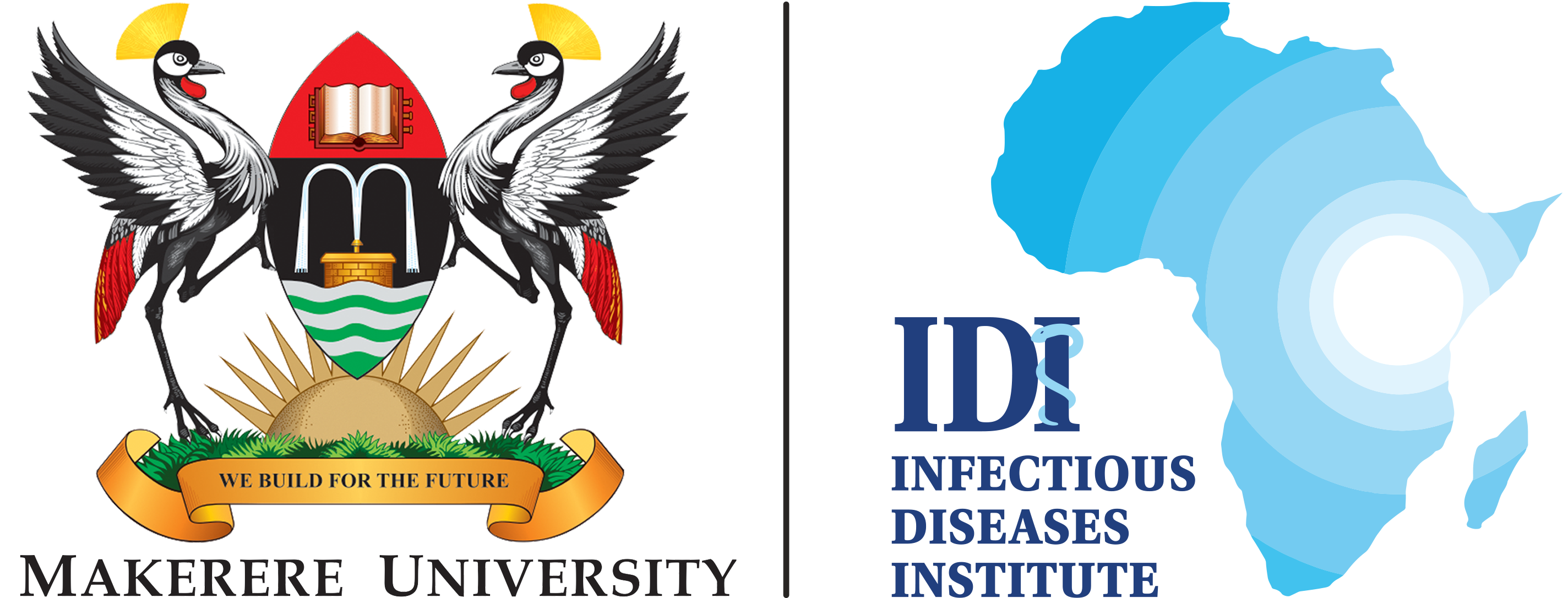- Associated Links
-
-
Our united network of partners and institutions share a vision for excellence, innovation, and impact. Together, we harness our combined strengths to create meaningful change.
-
-
-
- Careers
-
-
Our people are our greatest asset. We foster a thriving environment where everyone can flourish and make a difference. Join us in driving innovation and positive change through fulfilling career opportunities.
-
-
Clinical Care
Our approach to patient care involves treating our patients as outpatients, which allows them to receive the best treatments and care while also having the freedom to be themselves and pursue their dreams.

At IDI, we strive for a case mix that provides quality services for as many people as possible, while also enabling research to generate information on better approaches to care in low-resource settings. All friends receive ongoing counselling, safe water, mosquito nets, condoms, and diagnosis and treatment for opportunistic infections. Sexual reproductive health services are an important part of all care as well. Approximately 8,300 people are receiving care at the IDI clinic, accounting for 1 in every three HIV on care in Uganda.
Our Specialised Clinics
We provide differentiated comprehensive HIV care service.
In response to the changing nature of the epidemic, the Prevention, Care, and Treatment programme has established 10 specialised clinics to address the differentiated needs of specific groups. These groups include people with suppressed immunity (low CD4 counts), those with TB/HIV co-infection, elderly individuals with HIV, people with sexual and reproductive health needs, most-at-risk populations such as discordant couples, and individuals with non-communicable diseases, as well as psychiatric problems. These clinics are staffed with doctors and nurses who not only possess expertise and a special interest in these patients but are also actively engaged in research that focuses on the unique aspects of HIV within these special populations.
Advanced HIV/AIDS Care Clinic
Approximately 8,300 people currently receive care at the IDI clinic, with an additional 10,000 receiving care through outreach activities. At IDI, individuals living with HIV are provided with various services, including free antiretroviral therapy, specialist consultations, and a supportive clinical environment for patients, as well as a conducive learning environment for staff. The clinic also functions as a platform for IDI’s research and training activities. There is an increasing emphasis on developing models of care for infections closely related to HIV, such as TB and Kaposi’s Sarcoma.
Integrated TB/HIV Clinic
Although TB and HIV are different diseases, it is very common for individuals with HIV to contract TB. Thanks to three interns from Yale University, a special TB/HIV clinic was established in 2008 to ensure that friends with TB/HIV co-infection receive the monitoring and care they need. This clinic serves over xxx clients. The structured clinic has led to better treatment outcomes, with a significantly reduced number of clients lost to follow-up. Through this clinic, a pilot study for the development of fluorescent microscopy for the diagnosis of TB was conducted and led to the introduction of Fluorescent Microscopy services at the IDI clinic, enabling same-day diagnosis of TB in the clinic.
Additionally, several abstracts were presented at international meetings, including an award-winning analysis that documented earlier ART initiation among TB/HIV co-infected clients and better outcomes. The abstract—Integration of HIV and TB services results in earlier and more prioritized ART initiation in Uganda—was awarded the US$2,000 TB/HIV Research Prize at the 2011 International AIDS Society (IAS) conference.
Sexual Reproductive Health Services Clinic
Sexual and reproductive health services are integrated within HIV care with the aim of reducing unplanned pregnancies by providing appropriate family planning services and eliminating mother-to-child transmission (eMTCT). REF/URC.
Adolescent Clinic
This clinic serves HIV-positive young adults between 16 and 24 years old. It is the largest HIV clinic for young people in Uganda, with over 950 young adults accessing modern family planning services. It was established in response to a survey that indicated the majority of this age group is sexually active, has low condom usage, prefers HIV sero-negative partners, and holds many misconceptions about HIV sero-discordance and transmission. Unintended pregnancies have been kept to a minimum (1 in every 6 women of reproductive age) as a result. The girls and women are screened for sexually transmitted diseases and cervical cancer, supporting adolescents in transitioning to the full adult clinic.
Discordant Couple Clinic
In response to the high risk of HIV transmission among discordant couples, IDI established a Discordant Couple’s Clinic to promote HIV prevention. The clinic employs positive prevention techniques, directing prevention efforts towards individuals living with HIV through treatment. The clinic serves HIV-positive young adults between 16 and 24 years old, making it the largest HIV clinic for young people in Uganda, with over 950 young adults accessing modern family planning services. The clinic has xxx registered couples accessing excellent clinical care and sexual reproductive health services, including identifying HIV discordant couples and helping them maintain their discordant status through dedicated clinical and counselling services. The girls and women are screened for sexually transmitted diseases and cervical cancer, supporting adolescents in transitioning to the full adult clinic. The clinic has been successful in keeping unintended pregnancies to a minimum (1 in every 6 women of reproductive age). Some of the services offered at the clinic include:
- HIV clinical care, including treatment of opportunistic infections, clinical and laboratory monitoring.
- Disclosure through discordant couple-specific counselling and peer psychosocial support services with focus on how to lower the risk of HIV transmission within discordant relationships.
- Routine counselling and testing of negative partners.
- Sexual reproductive health services, including prevention of mother-to-child-transmission (PMTCT), family planning, treatment for sexually transmitted infections and condom distribution.
- Specific counselling on the issue of having HIV-free babies among discordant relationship, or couples where both partners are HIV positive. This is one of the key needs met through this clinic.
Elderly Clinic
In 2011, a specialized clinic addressing the distinctive needs of individuals over 60 years opened its doors to the public. Since its inception, the clinic has received an overwhelming and positive response from both individuals seeking care and healthcare providers. The clinic provides treatment for a range of chronic illnesses, including hypertension, musculoskeletal, cardiac, and other underlying metabolic conditions. The Elderly Clinic also hosts various research activities related to psychological support and baseline information about the clinic’s population. The clinic is an innovative venture that will continue to reach out to this underserved population.
Mental Health Clinic
In February 2013, with funding from the Centers for Disease Control and Prevention (CDC) through the US President’s Emergency Plan for AIDS Relief (PEPFAR) program, IDI opened the doors of the Mental Health Clinic to the public to address the vital need for psychosocial support services. Today, the clinic serves more than xxx people living with HIV (PLHIV) who need mental healthcare. Previously, cases of HIV-induced psychosis, HIV mania, and HIV dementia were referred to other specialized units of care. Now, IDI is specially placed to handle mental health problems, given its long history of working with PLHIV.
Kaposis Sarcoma Clinic
Kaposi’s Sarcoma is the most common cancer in the world among people living with HIV. In Uganda, it accounts for six out of every 10 cancer diagnoses made at the Uganda Cancer Institute. All patients who come to the IDI clinic undergo a skin examination, and biopsies are conducted in cases of suspected Kaposi’s Sarcoma. Persons found to have Kaposi’s Sarcoma are put on ART immediately if they are not already on it.
Co-pay Clinic
Established with support from the Stars in Global Health grant from Grand Challenges Canada, the idea of a co-pay clinic was born. The clinic aims to ensure the sustainability of clinical services by implementing a socially acceptable charging system for individuals seeking convenient care. At this clinic, we serve people who want extra privacy and have complex non-communicable disease problems, such as hypertension. Staffed by specialist doctors, the clinic has registered over xxx patients, many of whom were previously lost to follow-up or had failed on antiretroviral therapy (ART) at other centres.
Non-Communicable Disease Clinic
The Non-Communicable Disease (NCDs) clinic is the newest specialized clinic at IDI, addressing the unique challenges associated with the growing burden of NCDs in Uganda. Friends burdened with NCDs are encouraged to register with the clinic, and so far, over xxx friends have been treated. One of the biggest challenges is working with diabetes or hypertension because these conditions require constant monitoring and daily drug regimens. Health education on diabetes, hypertension, and other related conditions is a significant part of this clinic’s activities to impart knowledge to friends and their support networks, creating a sustainable environment for the management and treatment of NCDs.
LISTINGS
For more information on IDI’s Prevention, Care and Treatment Programme contact,
Aggrey Semeere, Head of Prevention, Care and Treatment Email: Clincalcare@idi.co.ug Telephone: +256 312 307 237

